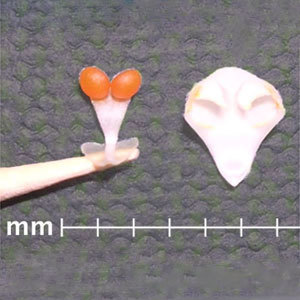A great tool for preserving the progeny of orchids, mericlones come with some disadvantages also. To avoid some of these, it is essential to follow the steps for mericloning very carefully. But why to clone your orchid in the first place; there are a number of reasons for opting for this method of producing orchids.
Why mericlone your orchid?
1. If you are planning to produce an exact copy of your favourite orchid, mericlones is the technique you need to go for.
2. If you want to reduce the time span of flowering and require a large number of flowers in a short period of time, mericloning is what you need to learn. Commercial growers are using this techniques world over to produce quick batches of flowers.
3. Meristem tip culture is one of the successful methods to produce virus-free clones. The shoot tip is relatively free of virus even when the whole plant is infected. However, proper protocols have to be followed to produce healthy orchids from virus infected donor plants.
4. Orchids that are difficult to propagate through seed germination are often cloned through mericloning.
5. Mericloning reduces the possibility of variability in orchids, unlike those orchids that are produced through seeds.
What can go wrong with mericlones?
1. This technique has to be done under clean and sterile conditions. Detection of viral infection is very difficult if the mericlones get infected.
2. Due to various factors and repeated cloning mutations occur, and the clones start producing smaller flower and spikes. The prevailing conditions under which the clones are grown can also change the physical parameters. For example, leaves become thick and are shorter leaves under higher light intensities, while higher temperatures can promote leaf formation and inhibit flowering.
3. Though, tissue culture is supposed to produce clones resembling the parent plant exactly, however sometimes when a single plant is used to produce numerous clones the quality of flowers decreases due to mutations (changes in the genetic setup). This can happen when starting material is taken from the mericlone or from the protocorm in the flask instead of the original plant.
The technique of mericloneing is not very difficult to master. Though a beginner has to keep in mind a few tips; such as maintaining a sterile environment when preparing, using the original orchid for preparing mericlones, in the case of virus infected orchid take only the shoot tip meristem for cloning as it is the only area which is mostly free of the virus.

Orchid Mericlones - Why go for this method?
Propagationby Anu Dharmani
Originally published in BellaOnline
Posted by Sys Admin about 9 years ago.Article Blog Article Index
Share on Social Media:
New Topics
- Al Schotz asked question Gomesa bifolia in category General Discussion
- Kjell Meershoek started topic Re-inventing an orchidarium.. your thoughts in category Curiosity
- David George asked question Odom's Fascination - an unusual orchid in category General Discussion
- Carol Holdren asked question Grow Tent in the Garage in category General Discussion
- David George asked question rlc Caotan Beauty found at Home Depot in category Cattleya Alliance
New Comments
- Kjell Meershoek commented on topic "Re-inventing an orchidarium.. your thoughts" by Kjell Meershoek
- Inga Kruppa commented on member plant Acacallis cyanea Х Paradisanthus micranthus by Inga Kruppa
- Carol Holdren commented on topic "rlc Caotan Beauty found at Home Depot " by David George
- Carol Holdren commented on topic "Odom's Fascination - an unusual orchid" by David George
- Dr. Florian Wolf commented on topic "Wild. Lisa Devos" by Maria Fernandez
- Michael Valcarcel commented on member plant Rlc. Chief Takanaka by Walceli Muniz Valverde
- Michael Valcarcel commented on member plant Rlc. Montana Spirit by Michael Valcarcel
- Michael Valcarcel commented on member plant Ctt. Blazing Sun by Michael Valcarcel
- Michael Valcarcel commented on member plant Bc. Spotted Clown by Michael Valcarcel
- Maria Skrypnyk commented on member plant Yamadara Redland Sunset by Maria Skrypnyk
- André Pessina commented on topic "Odontocidium Orchid fungus?" by Kristin Dorris
- Linda Hartman commented on topic "Image of a plant please" by Leshya Perkins
- Paul Reavis commented on orchid Milt. Kismet
- Christiaan Viljoen commented on member plant Psh. fragrans by Christiaan Viljoen
- Christiaan Viljoen commented on member plant Z. maculatum by Christiaan Viljoen
- Christiaan Viljoen commented on member plant C. Gaskell-Pumila 'Azure Star' by Christiaan Viljoen
- Robert H. Findlay commented on member plant Rlc. Joy Sokabe var. Volcano Queen by Sally K
- James Lunsford commented on member plant Lc. Sagarik Wax 'African Beauty AMO/AOS x Blc. Cherry Suisse'Kauai' HCC/AOS var. Cattlyea 'Hybrid ' by James Lunsford
- John Varigos commented on orchid Bulb. schwarzii
- Linda Hartman commented on topic "Issue with Blc. Ben O'Neil "Jubilee" by Glenda Ratliff